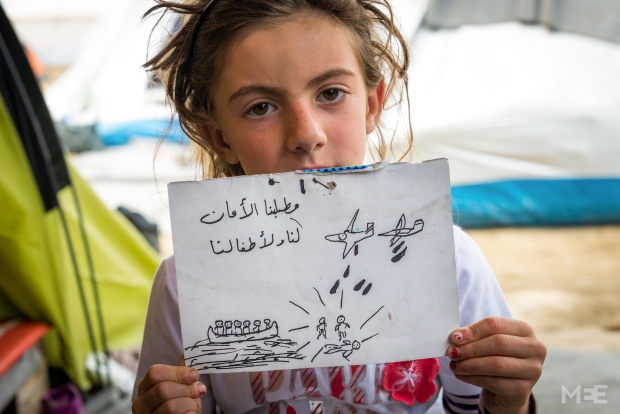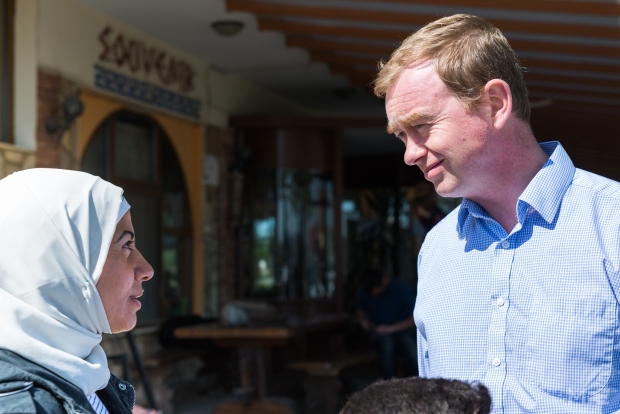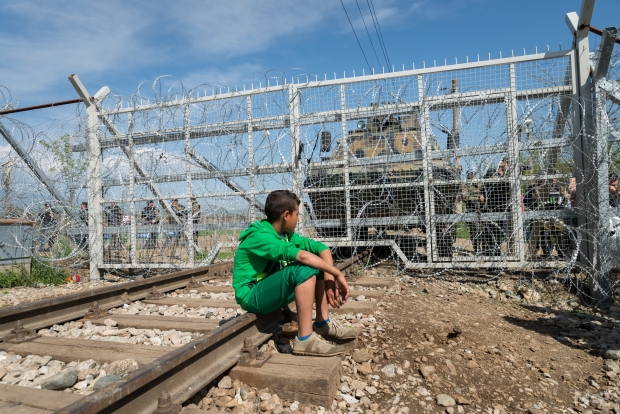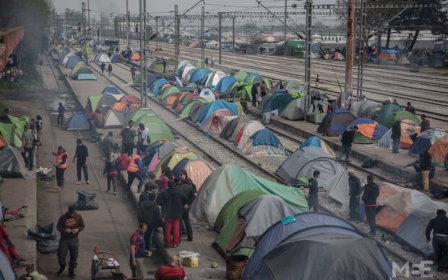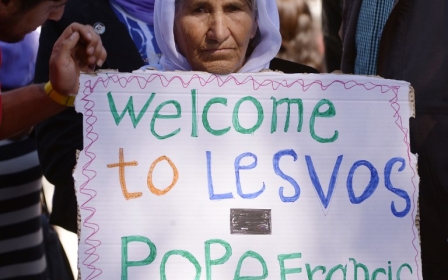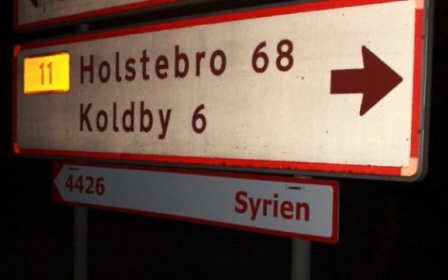Skype SOS: A refugee's lifeline to freedom
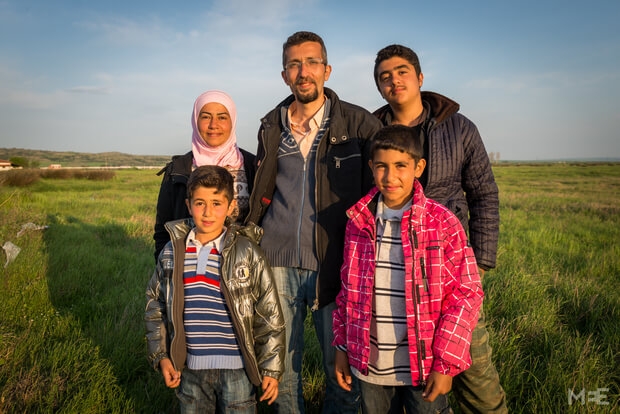
Polykastro, GREECE: Picture the crowded muddy fields in northern Greece where thousands of refugees and migrants sleep in flimsy tents, waiting for days, weeks and months to find out what their futures hold. Facilities are rudimentary at best, children have no education to occupy their minds, reliable information is limited, misinformation is abundant, phone services are sporadic - and now the only hope of escaping it all is by Skype.
Since the border with Macedonia closed, refugees are being informed by officials from the UN and European Asylum Support Office (EASO) that they must make an asylum application in Greece, the outcome of which will determine if and where they will be relocated in one of the European countries that have agreed to the latest EU Relocation Programme.
The first step in initiating that process involves connecting to a Skype line that is open for only one hour per day for Arabic speakers. For Kurdish speakers, it is open for just one hour per week.
For many in Europe, where access to the latest mobile technology is an everyday reality, using Skype is as simple as picking up the phone. For others, however, it is an entirely alien concept.
Hello, is there anybody there?
Manar Aeid, a 37-year-old mother of three, speaks about how she and her husband Moyad refused to give up hope, trying repeatedly for 27 days to make the all-important appointment to speak face to face with an asylum officer. On 8 April, the line connected.
“It was like a dream,” says Manar. “I saw the screen, it was black, and I realised it was connected. I didn’t believe it – I started to shake because it was 27 days of trying. I didn’t have any hope that they are going to answer.”
Manar and her family arrived in Greece on 26 February after crossing the Aegean Sea in a small dinghy. Like the hundreds of thousands of refugees and migrants crossing from Turkey to Greece, they had risked their lives to reach the safety of European shores.
“We didn’t choose to come here, we had to come, it wasn’t our choice,” says Manar. “I started thinking about going to Europe only for my children’s safety, to take them out of the war - it’s horrible there. You can’t raise a child in war. My eldest son has been out of school for five years. Because it’s a war there aren’t any schools inside the area where we live.”
Bombs everywhere
Manar and her family are from a town near Damascus that is controlled by the Syrian army and is a hotspot of the conflict.
“There are bombs coming – both sides are giving us bombs,” she explains. “It’s two areas – one is the Free Army and the other is the Assad Army. Both sides are sending bombs to the other side and the normal people have to live under the bombs. It’s like rain. Everyday you are hearing the sounds, seeing the buildings destroyed, seeing the people dying. It’s a horrible place to live, you can’t live like this, you can’t raise a child in this situation.”
After reaching the island of Samos, the family travelled to Athens and then to the border with Macedonia where they have since stayed in the Nea Kavala military camp.
No one answering the phone
“First of all the border was open. We were waiting to pass, everyday they were saying that a certain number of people are passing, and suddenly the border closed. We were hoping every day it’s going to open tomorrow, or it’s going to open after five days,” she explains. “It’s not information from official people, it’s only from the people around here who keep saying this, who keep creating information because no one is giving exact information. We have waited and waited.”
In order to make their initial appointment for an interview with an asylum officer, refugees in northern Greece are given a Skype contact which they must connect to during a one hour window each day, from Monday to Friday. The window of time differs for each nationality and was recently extended to be available for Arabic speakers on Fridays from 12-5pm local time.
“You are going to be crazy,” says Manar. “No one answers the phone. You’re in the camp and there are 3,500 people and no one has said ‘I’ve made it’. No one has said ‘they have answered me’.”
She explains that many people in the camp are reluctant to trust in the new system, some fearing it is a trap or a lie and many losing hope that their efforts will provide the result they long for.
“In the first week, everyone was trying. And then they became fed up. No one was answering so they started to say it’s a lie, that they are trying to trick us and keep us calm. Everyone started to lose trust with this system. But I didn’t. Me and my family kept trying and trying everyday,” explains Manar.
'What is Skype?'
“Everyday from 3-4pm I was sitting in the tent with my whole family - all of you have to be together because when they answer they are going to take a photo of everyone, one by one. It’s a video call.”
Fortunately for the Aeid family, they are familiar with the Skype programme and have the means to use it. “A lot of people don’t even know what Skype is,” she says. “They came from UN and EASO to tell people that you have to use Skype and many people said ‘what is Skype? I don’t know what it is.’ Some people don’t have phones, so they can’t buy Internet to use it.”
There are rumours, explains Manar, that some people in the nearby camp at Idomeni have started charging people to use their smart phones and Skype in order to try and make the call. “They say you have to pay me €10, even if it doesn’t connect. If you are desperate and you don’t have any other solution you are going to do it,” says Manar.
For one hour each day, she and her husband took turns trying continuously to connect to the Skype line. “Me and my husband told our children they can’t go out of the tent for this hour, not even to the toilet,” she says.
“On the other days it’s easier, but on Fridays it’s five hours. Imagine for five hours we are in the tent and we are trying and trying. If we want to go to the toilet we all go. We stop trying for five minutes, we have to run to the toilet and come back again because we don’t want to lose the time.”
'Please God let it open'
When the call finally connected, an Arabic speaking woman asked Manar to turn on the camera. “It was too hard to open because the Internet was too slow,” she explains. “I said ‘oh my God, please God let it open’. At last it opened.”
Manar was given a date for her and her family’s interview at the regional asylum office in Thessaloniki, a city 60km from their camp. No transport is provided for refugees from the camp to the city to attend the interview. Fortunately for Manar’s family, their transport was organised and provided by independent volunteers.
Anxious about arriving on time for the all-important appointment that was scheduled for 7am on 13 April, Manar explained that she planned to arrive the night before, and if necessary pitch their tent outside the door so as not to miss the interview.
Desperation in the absence of information
“People are desperate,” says Manar. “They are telling me ‘it’s a lie, even if you have connected and you have an appointment, they are going to keep you here for five, six months’. I asked a EASO woman if she knows if anyone has connected with this Skype – she told me ‘Yes, I know two’.”
In an already tense atmosphere, Manar explains that people are becoming angry and frustrated by the inadequacies of a system that is supposed to help them, but in reality is failing them.
“You don’t know what’s going to happen to you – some people are telling me they would prefer to go back to Syria under the bombs because it’s easier than living here without hope, without information, without anything for their futures.
"At least we want someone to come to us and tell us what is going to happen to us. Everyone is telling me ‘I’m ready to wait for one year as long as they tell me they are going to do something after this year, not only waiting for nothing.’
"People are scared of anything. For example, if there is an official person in the camp giving us a light, they are afraid. ‘Are we going to stay here forever? Why are they improving the camps? We don’t want them to improve the camps,’ they say.
"They gave us beds. Everyone is saying: ‘I don’t want a bed, I don’t want to spend my life here.’ It’s very desperate.”
Middle East Eye propose une couverture et une analyse indépendantes et incomparables du Moyen-Orient, de l’Afrique du Nord et d’autres régions du monde. Pour en savoir plus sur la reprise de ce contenu et les frais qui s’appliquent, veuillez remplir ce formulaire [en anglais]. Pour en savoir plus sur MEE, cliquez ici [en anglais].


